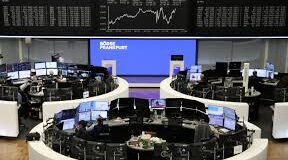
The global economy is heading towards a “recession” which will affect not only large economies but also small economies, including countries like Bangladesh, said an independent think-tank on Tuesday.
Tensions over the maritime space could be “accelerated” as there is increased Indo-Pacific “competition and uncertainty” over the Pacific island waters, it said.
Sharing its “security insight,” Bangladesh Institute of Peace & Security Studies (BIPSS) said there are ten things to worry about in 2023.
The year 2023 is predicted to be subject to “great uncertainty” as the previous year faced unprecedented issues, like the COVID-19 pandemic and the Ukraine war.
The world will face some mentionable challenges from the spectrum of security, climate, technology, economy, and so on, which will be a severe concern for world leaders, according to BIPSS analysis.
Even after 11 months of the deadly war in Ukraine, there is no sign of a solution.
“The symptoms indicate a prolonged war. Russia is heading towards more dangerous and offensive approaches, termed the “Special Military Operation” in Ukraine,” said BIPSS.
Great uncertainty and concern hang over the Taipei issue and it will destabilize global peace and harmony if it erupts into a conflict, according to the think tank.
A complex strategic competition is starting, indicating that it could lead to a new cold war, BIPSS said, adding that the Russia-Ukraine war is working as a root factor of it.
Worsened global energy supply is assumed as the oil supply will be reduced by around 1.7 million barrels/day, along with limiting LNG supply, it said.
A black year for food security is expected, as 828 million people are already in food scarcity.
The World Food Program indicates that 28 countries, including Bangladesh, are the most vulnerable to food insecurity.
The possibility of deploying and using tactical nuclear weapons cannot be ruled out with the ongoing conflict in Ukraine, BIPSS said.
The targeted achievement of limiting global warming below 1.5 degrees Celsius seems uncertain. If that happens, then there could be catastrophic consequences.
Disruptive technology will affect state security since states must update their technological tools.
Cyber threat has become a severe concern for state leaders, according to the analysis.
 Weekly Bangla Mirror | Bangla Mirror, Bangladeshi news in UK, bangla mirror news
Weekly Bangla Mirror | Bangla Mirror, Bangladeshi news in UK, bangla mirror news







